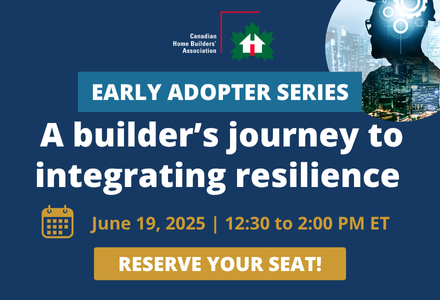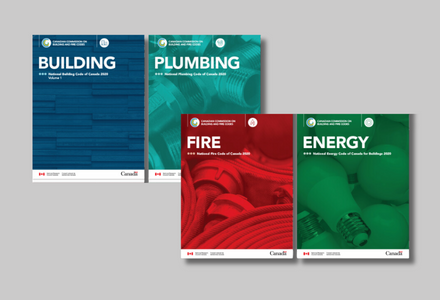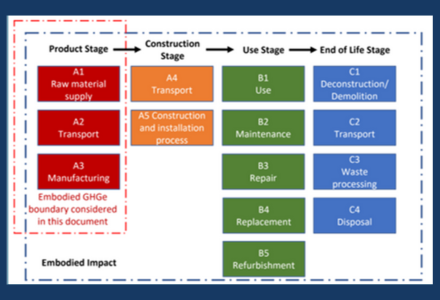|
|
Welcome to Housing Tech News |
|
|
|
In this issue:
|
|
|
|
Early Adopter Webinar Series #1: A Builder’s Journey to Integrating Resilience JUNE 19 @ 12:30 PM ET / 9:30 PM PT |
|
|
|
|
New: Code Meeting Notifications – Sign Up to Receive Updates A considerable staff effort by CHBA is invested in National Codes committee meetings, and CHBA’s tech team has developed a new way to keep members informed about important meetings. Members can now sign up to receive bi-weekly notification emails about high-priority committee discussions. Through this service, CHBA’s Technical staff will notify subscribers of upcoming meetings, share the mandates of relevant National Model Code Committees or Task Groups, and explain why it may be important for members to participate. CHBA hopes members can use this service to help decide when to attend technical code meetings, as well as the more policy-oriented meetings of the Canadian Board for Harmonized Construction Codes and the Advisory Council on Harmonized Construction Codes. To opt in, please click here or contact Alex Bols. If you know a colleague within your organization or a fellow CHBA member who should receive these updates, please also let them/us know rather than forwarding them your own Code Notification email. CHBA will set up an account for them and ensure they receive future notifications. |
|
|
|
Conference Talk: Avoiding Electrical Panel Upgrades Over 200 CHBA members attended the joint session for the Net Zero Council and the Technical Research Committee at CHBA’s Home Building Week in May. Electrification was a major focus. Members and presenters shared common barriers, learned about the utilities’ roles and constraints. Participants also developed strategies on how to overcome the barriers, for example: how to avoid electrical panel upgrades when heat pumps or electrical vehicles bring the calculated loads over the rated service panel capacity.
Brendan McEwen from Dunsky presented a report on “Power Efficient Design (PED)” and led attendees through the series of strategies generated by the Consortium of Power Efficiency that make up this new design approach, which limits the buildings’ electricity use to ensure that demands stay within the constraints of buildings’ electrical services, and aims to keep costs down for new construction and renovations while allowing more electrification.
PED strategies fall into four categories, and the third is using Energy Management Systems (EMS), which monitor and control electrical loads so as not to exceed capacity limits—a major opportunity to save costs, versus having to upgrade system capacity. EMS temporarily reduce demands and allow eliminating loads from vehicle charging from being counted towards the electrical panel load capacity. Pages 60-69 of Dunsky’s report contain detailed information on how to use this technology to avoid costly panel upgrades. Talk to your local electrical safety authority to find out if energy management systems are permitted to be taken in lieu of panel upgrades in your area. For more information, please email Frank Lohmann. |
|
|
|
Over 200 Changes Approved for the 2025 National Codes CHBA staff and members spent thousands of hours in national codes meetings throughout the three-and-a-half year long code development cycle that will end in December 2025 with the publication of the 2025 Harmonized Construction Codes. The Canadian Board for Harmonized Construction Codes (CBHCC) approved over 200 proposed change forms (PCFs) for the 2025 codes during their public meeting on April 23, 2025. This includes new requirements for prescriptive compliance with energy efficiency tiers and energy efficiency related requirements for alterations to existing buildings, protection from radon, lateral load resistance and sill protection at doors and windows, as well as new requirements for adaptability and visitability in homes. Although CBHCC initially deferred their approval, it has since approved the proposed controversial changes to regulate operational greenhouse gas emissions from homes, against which CHBA will continue to advocate. CBHCC has, however, decided to defer a proposed change (PCF 2061) that sets a maximum indoor safe temperature of 26°C during the summer period and proposes to mandate whole-house cooling systems in regions where the July design temperature exceeds 26°C. CHBA continues to participate in the committees deliberating the overheating change and will communicate any future decisions to members.
CHBA has created a summary of key proposed changes to the 2025 codes on CHBA’s Member Knowledge Centre, which describes the changes and some of their positive and negative aspects. The Provinces and Territories have committed to adopt the 2025 National Model Codes within 18 months of the publication date. CHBA continues to evaluate the cost impact of these changes, but we have already heard during the May Technical Research Committee meeting that some changes to the 2025 Codes may be very challenging from an affordability and buildability standpoint. For more information, please email Jack Mantyla. |
|
|
|
Have Your Say on Embodied GHG Codes CHBA’s Technical Research Committee has discussed operational and embodied Greenhouse Gas (GHG) emissions over the last few years and CHBA’s Net Zero Home Labelling Program will soon offer voluntary badges for these GHG emissions, leveraging the work from our Enabling Tiered Codes – Implementation and Market Preparedness NRCan-funded project. While operational GHG emissions are set to be regulated in the 2025 National Building Code that is soon to be published (a measure CHBA continues to advocate against), embodied GHG emissions are expected to be included in the 2030 edition of the National Model Code, which is why the Canadian Board for Harmonized Construction Codes (CBHCC) is requesting input from industry and other code users on a draft Embodied Greenhouse Gas (GHG) Policy Position to inform technical work for the 2030 code cycle.
The Consultation is from May 30 - July 14, 2025, and CHBA will be submitting comments on behalf of members. Interested members can read the content on the CBHCC’s consultation webpage and provide input for inclusion in the CHBA commentary by emailing Frank Lohmann or by submitting comments independently to the CBHCC Secretary by email. |
|
|
|
Join the Canadian Energy Code Advisory Service CHBA has often expressed concerns with inconsistent code interpretations and is pleased that the Alliance of Canadian Building Officials Associations (ACBOA) is taking action by launching a Canadian Energy Code Advisory Service (CECAS). From a CHBA perspective, this may be a positive step towards supporting CHBA’s recommended “national code interpretation centre,” which CHBA is seeking to have established to start eliminating the vast array of varying code interpretations by building officials in different cities that slow construction, increase costs, and reduce sector productivity. ACBOA invites volunteers for this national initiative, which it hopes will build capacity and improve the application of energy codes. ACBOA is looking for building officials, energy code specialists, and energy and technical advisors with deep knowledge of energy codes and a passion for helping peers navigate technical requirements. If you are interested in contributing to a national database of energy code resources and collaborating with peers, you can help the industry navigate and apply evolving code requirements. ACBOA is hoping to launch the service this summer. Express your interest by June 13, 2025 to ACBOA to learn more details. |
|
|
|
|
News Articles This section includes articles that you might find interesting. They do not necessarily reflect the views or opinions of CHBA.
|
|
|
|
The Canadian Home Builders' Association 141 Laurier Avenue West, Suite 500 Ottawa, ON K1P 5J3 |







